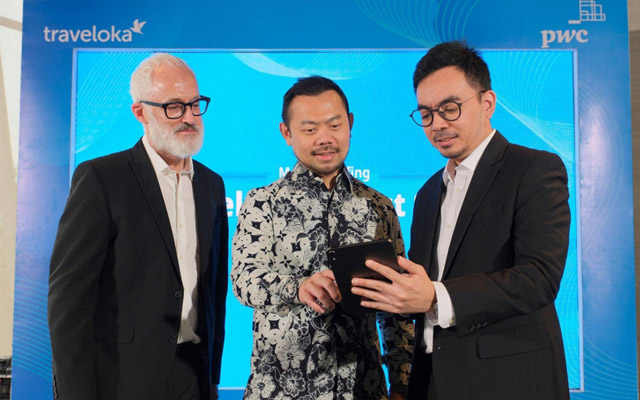A socio-economic impact study released by PwC Indonesia revealed that Traveloka is making significant social, environmental, and economic contributions to Indonesia, Malaysia, Singapore, Thailand and Vietnam.
While Traveloka’s primary economic contribution is within the tourism sector, its activities also extend to other sectors such as agriculture and energy, indicating a broader economic involvement.

The study highlights Traveloka’s role in stimulating an increase in Indonesia’s Gross Value Added across a four-year period, accounting for approximately US$10 billion between 2019 and 2022. Of this amount, the tourism sector accounted for more than US$4.5 billion, contributing 2.7 per cent to the sector’s GDP. This contribution played an important role in aiding the post-lockdown recovery of the travel and tourism sector in the region.
The study by PwC Indonesia highlights Traveloka’s impact as the platform enables its partners in Indonesia to unlock access to new global audiences and innovate to diversify revenue streams. 86 per cent of businesses who participated in the study agreed that Traveloka has helped to accelerate their business growth in the Travel & Tourism, Food & Beverages and Lifestyle sectors. Respondents reported an average of 50 to 75 per cent growth in sales after partnering with Traveloka.
Furthermore, 67 per cent of businesses based in off-the-beaten-track destinations reported experiencing positive trends in visits to their businesses after partnering with Traveloka, with 77 per cent agreeing that Traveloka has helped them promote domestic tourism. In addition, 62 per cent agreed that Traveloka has helped increase their competitiveness against businesses in other destinations. Among women-owned businesses, 85 per cent agreed that Traveloka has helped them promote their products and services, reach more customers, and obtain higher revenue from online sales.
PwC Indonesia’s director Julian Smith commented: “This study measures the ripple effect that Traveloka’s operations have on various sectors in the region. It is encouraging to witness a tech unicorn not only thrive but also catalyse positive change in the South-east Asia region.”
Traveloka not only established more direct, sustainable partnerships with suppliers in South-east Asia and fostered more profound relationships with travel partners, but is also committed to conducting its business responsibly and ethically to reduce its direct and indirect environmental footprint, both internally and externally. In fact, Traveloka has incorporated a filtering option labelled “Sustainable Tourism” within the app, allowing users to select the Carbon Offset Checkout on their flights and accommodation options certified by the GSTC.
Caesar Indra, president of Traveloka, shared: “We engage with millions of travellers daily, and this PwC Indonesia study quantifies for the first time our sizeable contribution to Indonesia’s economy through powering innovation, driving growth for local businesses, and job creation.
“As we continue to grow our presence around the region and the world, we remain committed to serving our customers, and delivering positive and sustainable impact in Indonesia for the long-term.”




















